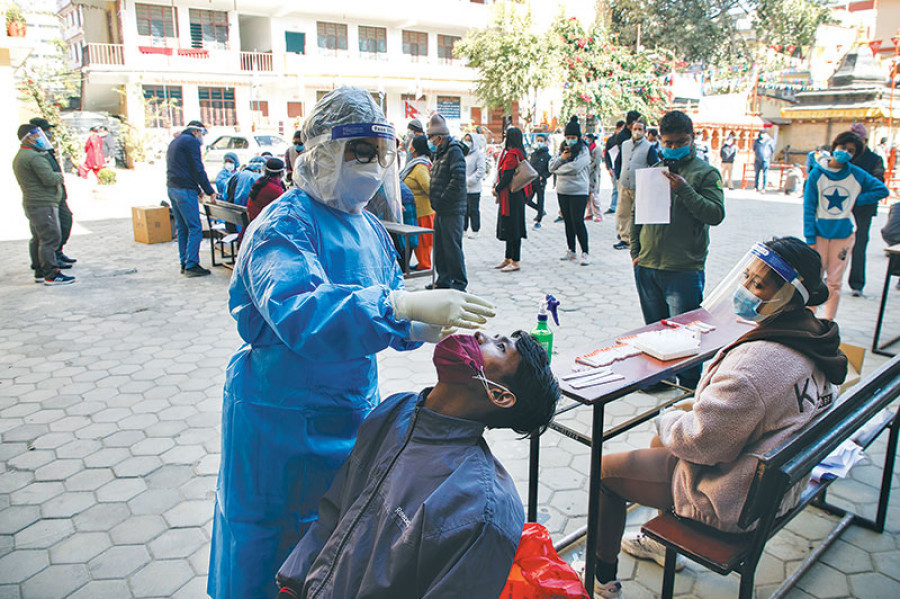Health
Officials yet to make seroprevalence study data public
As officials want another large-scale study, health workers say they can’t do anything when the government itself starts concealing facts and covering up findings.
Arjun Poudel
When the Ministry of Health and Population directed him not to disclose the findings of the coronavirus seroprevalence study carried out in September, Dr Basudev Pandey, director at Epidemiology and Disease Control Division, remembered an incident from 2001.
Pandey, who was pursuing his postdoctoral fellowship in the US back then, had come across a student who collected data as per his need and manipulated it to suit himself.
“I remembered the student when officials directed us not to disclose the findings of the seroprevalence study,” Dr Pandey, told the Post. “We had presented them (the officials) the real findings, but they could not accept it and warranted another study.”
Back in 2001, a professor at the university found out what the student was up to and issued a warning. But there’s no one to do that in the case of the seroprevalence study in Nepal, he said.
“We did not know that our officials needed data to support their claim that everything is under control,” he added.
The nationwide study, which is yet to be made public, reportedly showed that around 13 percent of the country’s population was infected with Covid-19 until September.
The study, conducted with technical and financial support from the World Health Organization, reportedly found the highest prevalence of the infection in Province 2(23 percent), followed by Bagmati Province (17 percent) and Province 1 (13 percent). Numbers for other provinces are still a mystery.
Officials at the Health Ministry decided not to disclose the data as seroprevalence surveys conducted in various countries reported figures of less than 10 percent.
“Officials had demanded yet another large-scale seroprevalence study, but it has not started one and half months after the decision,” an official at the Epidemiology and Disease Control Division, told the Post, asking not to be named. “When the government itself works to conceal the facts and cover up findings, what can health workers do?”
At present, no one knows about the extent of the spread of coronavirus in the country, where 1,927 people have already died due to the disease and 265,268 have been infected.
If the claim of the Health Ministry is to be believed, infection rates have declined by several folds in the last few weeks. All businesses, which were closed or suspended to prevent the spread of the infection, have now resumed and safety measures such as social distancing and use of face masks are not being followed in public places.
Public health experts as well as officials working for agencies under the Health Ministry doubt that the infection rate has declined as claimed by officials.
“We have been considering data obtained from healthy people seeking testing to go abroad and coming up with the conclusion that infection rates have declined,” said an official at the division. “The people who are getting infected are not getting tested,” the official said.
“Public safety is at risk when the government spends all its energy trying to save itself instead of the public. That’s what’s happening right now.”
Experts say that infection rates can’t go down unless some measures are adopted to drive them down. Such measures are nowhere to be seen in the country. With the government halting free testing, contact tracing has also been stopped.
“When the government works to save money instead of people’s lives, the people suffer,” Dr Tulsi Ram Bhandari, director at School of Health and Allied Sciences, under the Pokhara University, told the Post. “It seems that the authorities concerned have given up on all responsibilities to contain the spread of the infection.”
According to Binjwala Shrestha, assistant professor at the Institute of Medicine, data obtained from a seroprevalence study can provide a fair picture of the infection rate in communities,which helps authorities concerned locate hotspots and take various necessary measures to contain the spread of infections.
“People should save themselves from being infected as authorities concerned have given up on their responsibilities.We should think of our small children and elderly parents and keep following safety measures.”




 9.89°C Kathmandu
9.89°C Kathmandu















